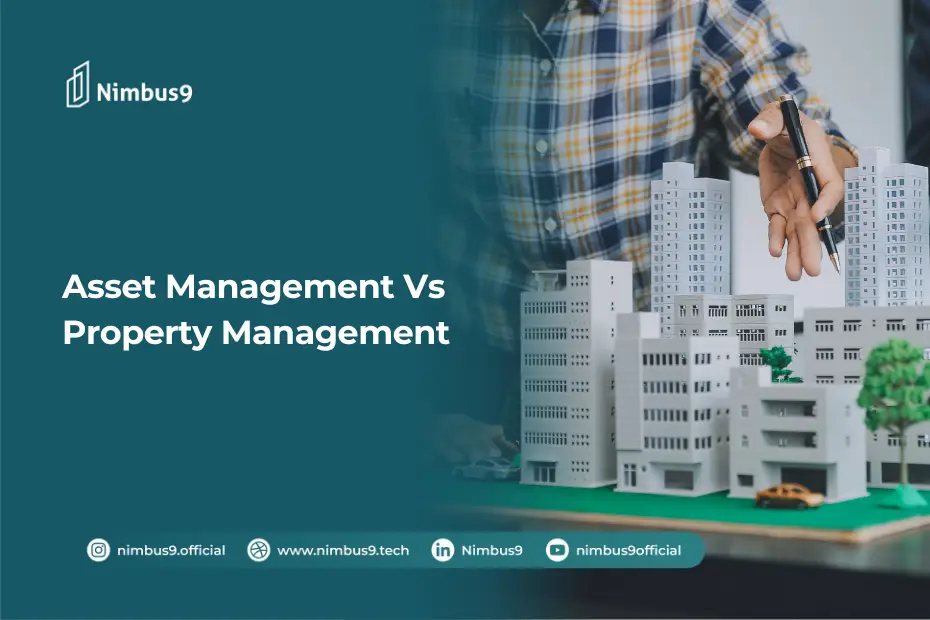In the world of real estate, two terms often come up: asset management and property management.
At first glance, they may sound similar — both deal with managing properties — but in reality, they have very different focuses and responsibilities.
Knowing the difference between the two is important for property owners, investors, and real estate professionals. It helps ensure that every property is managed efficiently, profitably, and strategically.
This article breaks down what each role does, why both are important, and how they work together to create successful real estate investments.
What Is Asset Management?
Asset management is all about the big picture. It’s a strategic approach to managing real estate investments to maximize long-term value and returns.
An asset manager looks beyond day-to-day operations. They focus on financial performance, market opportunities, and long-term growth strategies for an entire property portfolio.
Main Goals of Asset Management
-
Increase property value through upgrades, renovations, or repositioning in the market.
-
Maximize ROI (Return on Investment) by ensuring every property performs at its best.
-
Manage risks related to market changes, financial performance, or property conditions.
Key Responsibilities
-
Financial analysis: Reviewing revenue, expenses, and profitability.
-
Investment planning: Deciding when to buy, sell, or develop new properties.
-
Strategic decision-making: Setting long-term goals to grow portfolio value.
-
Revenue optimization: Reducing vacancies and improving rental income.
-
Performance tracking: Monitoring asset performance to ensure consistent results.
What Is Property Management?
Property management, on the other hand, focuses on the day-to-day operations of running a property.
Property managers make sure everything works smoothly — from maintenance and repairs to tenant satisfaction and rent collection.
Main Goals of Property Management
-
Keep tenants happy: By maintaining the property and responding to requests quickly.
-
Maximize rental income: Through efficient lease management and financial tracking.
-
Reduce vacancies: By marketing properties effectively and retaining good tenants.
-
Stay compliant: Ensuring the property follows all legal and safety regulations.
Key Responsibilities
-
Tenant management: Handling leases, renewals, and tenant concerns.
-
Maintenance and repairs: Keeping the property in excellent condition.
-
Security and cleanliness: Managing security staff and cleaning services.
-
Administrative work: Managing documents, reports, and legal compliance.
-
Financial management: Collecting rent, paying bills, and managing budgets.
-
Communication: Building good relationships with tenants to resolve issues quickly.
The Main Difference Between Asset Management and Property Management
Both roles are crucial to real estate success — but they serve different purposes.
| Aspect | Asset Management | Property Management |
|---|---|---|
| Focus | Strategic and financial performance | Daily operations and tenant satisfaction |
| Scope | Portfolio-level (big picture) | Individual property-level |
| Goal | Increase long-term property value | Keep properties running smoothly |
| Key Skills | Investment analysis, planning, risk management | Maintenance, customer service, operations |
In simple terms:
-
Asset managers focus on growing the property’s value over time.
-
Property managers focus on maintaining the property’s condition and keeping tenants happy.
They work best together — one ensures the property is profitable, the other keeps it functional and desirable.
Modern tools like Nimbus9 make this collaboration easier by offering all-in-one property management solutions — from tenant complaint tracking and maintenance scheduling to financial reporting and analytics.
These systems help property owners make smarter business decisions and manage operations efficiently.
Final Thoughts
Both asset management and property management are vital to building a successful real estate business.
While asset managers handle the strategy, property managers make that strategy work in real life.
By combining both approaches — strategic planning and effective operations — you can ensure your property investments continue to grow in value and deliver consistent returns.
Explore how property management software can streamline operations and boost your real estate business today. Choose Nimbus9 to help you.
